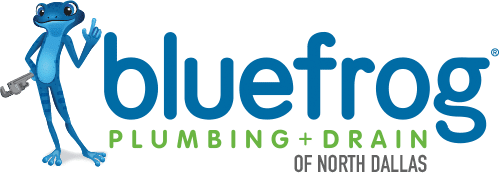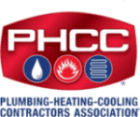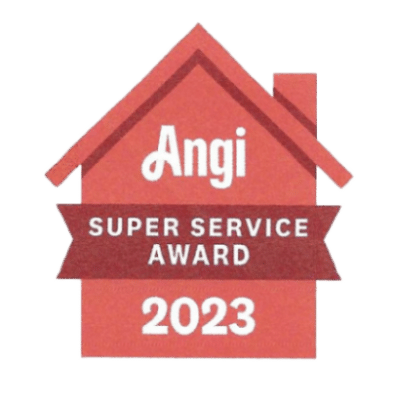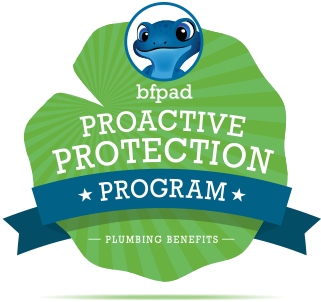
Dallas Soil Shifts and Their Impact on Sewer Lines
Dallas is defined by its expansive clay soils, especially the notorious Blackland Prairie soil, which reacts dramatically to moisture changes. This reactive behavior causes significant shifting; an invisible force that jeopardizes sewer lines and other essential infrastructure. As rainfall swells the clay and dry seasons shrink it, underground utilities face constant stress and strain.
Understanding these soil dynamics is crucial. Infrastructure durability hinges on addressing the risks posed by Dallas’s volatile earth. Proactive measures can mitigate soil-related damage, preserving sewer line integrity and saving homeowners from costly disruptions. Awareness is the first step toward protecting your property’s foundation and plumbing systems.
Understanding Soil Shifts
Soil shifts are an unseen force that can silently devastate infrastructure, with sewer lines among the most vulnerable. In Dallas, the expansive clay soil reacts dramatically to moisture changes, expanding during rains and contracting in dry periods. This constant movement creates invisible pressure that undermines the stability of homes and underground systems.
Dallas’s weather patterns amplify the issue. Heavy rainfall saturates the ground, causing swelling, while scorching summers lead to rapid drying and contraction. Adding to the problem, poor drainage systems, over-irrigation, or nearby construction can intensify soil movement. These factors create a perfect storm, turning stable soil into a shifting hazard for sewer lines and foundations.
When soil shifts, the damage is often slow but inevitable. Misaligned pipes, cracks, and blockages are just a few of the problems sewer lines can face. Ignoring these risks often leads to expensive repairs or total system failure. Homeowners who understand the impact of soil movement can take proactive steps to safeguard their property.
Investing in proper drainage, regular inspections, and professional advice can prevent costly issues. In a region like Dallas, where soil movement is unavoidable, vigilance is the best defense against damage to sewer lines and vital infrastructure.

Impact of Soil Shifts on Sewer Lines
Dallas’s soil has a unique characteristic that often goes unnoticed—its ability to shift dramatically with changes in moisture levels. These soil movements, though subtle at first, create significant challenges for infrastructure, especially sewer lines. The combination of clay-rich soil and fluctuating weather conditions in the region sets the stage for recurring underground stress. Over time, this leads to issues that can escalate into major disruptions for homeowners and businesses alike.
Invisible Cracks, Visible Problems
As Dallas soil swells during heavy rains and contracts during dry spells, sewer lines are subjected to continuous stress. This often results in cracks, some so small they go unnoticed until they expand and cause leaks. These cracks weaken the pipe’s structural integrity, increasing the risk of larger, more costly failures.
Alignment Issues and the Domino Effect
When soil shifts, sewer lines can move out of alignment, creating unintended stress points. These misalignments disrupt the natural flow of wastewater, leading to backups and blockages. Over time, a misaligned sewer line acts as a weak link in the system, increasing the likelihood of cascading failures.
The Rise of Sagging Pipes
One of the most common consequences of soil shifts is sagging, or “bellied” pipes. Uneven soil support causes sections of sewer lines to dip, forming a trap where debris collects. This restricts flow, fosters clogs and accelerates wear and tear on the entire system.
Weak Joints, Major Leaks
Sewer line joints and seals are particularly vulnerable to the effects of soil shifts. Each time the ground moves, these connections are stressed. Over time, this wear leads to leaks that not only waste water but also compromise the surrounding soil, perpetuating a cycle of instability.
The Worst-Case Scenario: Pipe Collapse
In severe cases, prolonged or extreme soil movement can cause entire sections of sewer lines to collapse. Collapsed pipes halt the flow of wastewater, requiring extensive and costly excavation to repair or replace the damaged sections.
Prevention Starts with Awareness
For Dallas homeowners, awareness of the risks posed by shifting soil is the first step toward prevention. Regular inspections by qualified professionals, improved drainage systems, and timely repairs can make all the difference. Early intervention helps mitigate the impact of soil movement and protects your sewer lines from extensive damage.
Living in an area prone to soil shifts does not mean damage is inevitable. By understanding the unique challenges of Dallas soil and taking proactive steps, homeowners can preserve their sewer lines and save themselves from unexpected disruptions and expenses.
Signs of Sewer Line Damage Due to Soil Shifts
Soil shifts are a silent but severe threat to sewer lines, especially in regions like Dallas with reactive clay-rich soils. These shifts can weaken pipes over time, leading to disruptions that impact the entire plumbing system. Recognizing early warning signs of sewer line damage is crucial for homeowners to address problems before they escalate.
-
Persistently Slow Drains
If water drains slowly across multiple fixtures in your home, it may indicate a larger issue within the sewer line. Shifting soil often causes misalignments that disrupt the natural flow of wastewater, creating blockages that do not resolve with typical cleaning methods.
-
Unusual Backups and Noises
Backups in sinks, toilets, or tubs—especially during wet weather—suggest compromised sewer lines. Gurgling sounds are another telltale sign, often caused by air trapped in misaligned or cracked pipes due to soil movement.
-
Lush Grass or Soggy Patches
A yard with unusually green, lush grass in one area might seem like a bonus but can signal a sewer line leak. Similarly, soggy patches or sunken areas may point to soil erosion from leaking wastewater—a common consequence of cracked pipes.
-
Pervasive Sewage Odor
Sewer line leaks often release unpleasant odors inside or around your home. This smell isn’t just an annoyance—it is a clear sign that your sewer system’s integrity has been compromised.
-
Foundation Cracks and Shifting Floors
Cracks in your foundation or uneven floors could indicate advanced sewer line damage. Soil shifts can destabilize not just your pipes but also your home’s structural foundation, creating costly repair needs.
Why Acting Quickly is Essential:
Ignoring these signs can lead to extensive and expensive damage. Cracked pipes can progress to full collapses, halting wastewater flow and requiring significant excavation to repair. Leaking sewer lines can also pose health risks by contaminating soil and water sources around your home.
Proactive measures like regular sewer line inspections and timely repairs can save thousands of dollars in future costs. By addressing these signs early, homeowners can protect their plumbing, property, and peace of mind.

Preventive Measures for Homeowners
Dallas’s ever-changing soil composition creates unique challenges for homeowners, particularly when it comes to maintaining sewer lines. Soil expansion and contraction, driven by moisture fluctuations, can lead to significant stress on underground plumbing. By implementing effective preventive strategies, you can safeguard your sewer system and avoid costly repairs.
Implement Proper Drainage Solutions
Effective drainage is essential for managing soil stability around your home. Ensure that gutters, downspouts, and French drains direct water away from the foundation. This reduces oversaturation, which often leads to soil swelling and pressure on sewer lines.
Maintain Consistent Soil Moisture
During dry spells, the soil contracts, which can destabilize underground pipes. Using a soaker hose to maintain even moisture levels helps prevent extreme contraction without causing oversaturation. Balanced hydration is critical to preserving the stability of your sewer lines.
Schedule Regular Sewer Line Inspections
Annual inspections by professional plumbers can catch minor issues before they become major problems. Tools like video inspections allow plumbers to detect cracks, sagging pipes, or leaks caused by unstable soil. Early intervention saves you from costly repairs down the road.
Upgrade to Durable Sewer Line Materials
Pipes made of older materials, such as clay or cast iron, are more prone to damage from ground movement. Replacing them with flexible, modern materials like PVC offers greater resilience to shifting soil and ensures long-term durability.
Choose Landscaping That Protects Plumbing
Trees and shrubs with aggressive roots can exacerbate soil instability and damage sewer lines. Opt for plants with shallow, non-invasive roots and maintain a safe distance between landscaping and underground plumbing to minimize risk.
The Importance of Proactive Maintenance:
Neglecting to address soil-related risks can result in severe consequences, from sewer line collapses to environmental contamination. Cracked pipes can lead to leaks that disrupt your plumbing and damage your property’s foundation. The costs of emergency repairs far outweigh the investment in preventive measures.
Proactive steps, such as maintaining drainage, upgrading materials, and scheduling inspections, protect your sewer lines from the challenges posed by Dallas’s shifting soils. By acting early, you ensure the stability of your plumbing system and avoid unexpected disruptions.
Role of Professional Plumbing Services
In Dallas, the shifting soils present a unique challenge to sewer lines, often causing cracks, misalignments, or complete collapses. Addressing these issues effectively requires the expertise of professional plumbers who specialize in soil-related damage. Their skills and tools provide precise solutions that safeguard your home and prevent costly disruptions.
-
Advanced Diagnostics for Accurate Results
Professional plumbers use cutting-edge video inspection tools to locate hidden damage within sewer lines. This technology allows them to identify the exact cause and location of issues like cracks, sagging pipes, or leaks, ensuring efficient and targeted repairs.
-
Customized Repairs for Soil Challenges
Soil movement impacts every property differently. Professionals tailor their solutions to your home’s unique situation. Repairs may include relining pipes, replacing compromised sections, or upgrading to flexible materials like PVC, which withstand soil movement better than older pipe materials.
-
Long-Term Protection Through Preventive Maintenance
Routine sewer line inspections by experienced plumbers help prevent minor damage from escalating into major problems. Regular maintenance ensures your plumbing system remains resilient, reducing the likelihood of costly emergencies and extending the lifespan of your sewer lines.
Why Choose bluefrog Plumbing + Drain of North Dallas?
bluefrog Plumbing + Drain of North Dallas offers specialized expertise in managing the soil-related challenges common to the region. Their experienced team uses advanced techniques to restore and reinforce sewer lines, providing durable solutions tailored to Dallas’s unique environment. Homeowners can rely on their expertise to protect their plumbing and property.
Professional plumbing services deliver more than repairs—they provide peace of mind. Trusting experts with your sewer lines ensures long-term reliability and protects your home from the unpredictable effects of shifting soils.
Innovative Solutions for Sewer Line Durability
In Highland Park, TX, where soil movement frequently impacts infrastructure, innovative solutions are enhancing sewer line durability and resilience. These advancements offer homeowners long-term protection against the challenges of shifting soils.
Flexible PVC piping is a leading solution. Unlike traditional materials, PVC flexes with soil movement, reducing the risk of cracks and leaks. Its durability ensures sewer lines remain intact even in areas with reactive soils, minimizing costly repairs.
Trenchless technology further revolutionizes sewer line repairs. This method allows professionals to reinforce or replace damaged pipes without disruptive digging, preserving landscaping while addressing soil-related damage efficiently.
Emerging smart monitoring systems also add a layer of protection. These sensors detect early signs of stress, misalignment, or leaks, enabling quick intervention before issues escalate.
Investing in modern materials and advanced technology ensures sewer lines withstand shifting soils. These solutions offer homeowners reliability, cost savings, and peace of mind for years to come.
Seasonal Considerations in November
November in Highland Park, TX, presents unique challenges for homeowners as fluctuating weather impacts the stability of sewer lines. The combination of sporadic rainfall and cooler temperatures affects the region’s clay-rich soil, which reacts dramatically to these changes.
Rainfall during November often leads to soil expansion. As the clay absorbs moisture, it swells, exerting pressure on sewer lines. This stress can cause cracks or misalignments, threatening the integrity of your plumbing system. To mitigate these risks, homeowners should ensure proper drainage around their property. Clean gutters, functional downspouts, and well-maintained yard grading help direct water away from sewer lines and foundations.
Cooling temperatures also play a role in soil behavior. As the weather dries, the soil begins to contract, creating voids around sewer lines. These gaps reduce the pipes’ support, increasing the likelihood of sagging or damage. Regular inspections during this season are essential for detecting early signs of these issues.
For Highland Park homeowners, vigilance is key. Look for unusual yard changes, such as soggy patches or overly lush grass, which may signal sewer line leaks. Taking proactive measures, like maintaining balanced soil moisture and scheduling professional inspections, protects against costly repairs.
Preparing your sewer system for the colder months ensures it remains reliable through November’s transitions and beyond.
Long-Term Solutions and Innovations
The persistent issue of shifting soils in Highland Park, TX, presents a significant challenge to sewer line durability. However, recent advancements in materials and technology offer innovative solutions that ensure sewer systems are more resilient, reducing the risk of damage and long-term maintenance costs.
Modern Sewer Line Materials for Flexibility
Traditional clay or cast iron pipes are highly susceptible to cracking under soil pressure. Today’s sewer lines, made from PVC and HDPE, are designed to flex and adapt to soil shifts without breaking. These materials not only last longer but also provide a sustainable solution to the ongoing challenge of soil movement.
Trenchless Repair Revolution
Repairing or replacing sewer lines no longer requires extensive digging and disruption. With trenchless technologies like pipe bursting and cured-in-place pipe (CIPP) lining, professionals can reinforce or upgrade sewer lines efficiently. These minimally invasive methods save time, preserve landscaping, and enhance the durability of sewer systems.
Smart Monitoring for Proactive Maintenance
The integration of smart sensors into sewer lines allows for real-time monitoring of pipe conditions. These systems detect stress points, leaks, or misalignments caused by shifting soils. By identifying issues early, homeowners can address minor problems before they become major expenses.
The Future of Sewer Line Innovations
Researchers are developing self-repairing materials and advanced composite pipes to withstand extreme soil movements. These innovations aim to make sewer systems highly durable, ensuring that homeowners can rely on their plumbing systems for decades.
Adopting these solutions empowers Highland Park homeowners to protect their sewer lines from the unpredictable effects of shifting soils. By investing in advanced materials and technologies, you ensure a stable and efficient plumbing system while reducing long-term costs.
Frequently Asked Questions (FAQ)
-
What causes soil shifts in Dallas?
Dallas’s clay-rich soil is highly reactive to moisture changes. During wet conditions, it expands, exerting pressure on underground sewer lines. In dry periods, the soil contracts, creating voids that destabilize pipes. Seasonal weather patterns, poor drainage, and landscaping can all contribute to these shifts.
-
How can I tell if my sewer line is affected by soil movement?
Signs include slow drains, frequent backups, foul odors, and unusual changes in your yard, such as soggy patches or depressions. Gurgling sounds from pipes and unexplained water bill increases are also common indicators.
-
Are there preventive measures to protect sewer lines from soil shifts?
Yes, preventive steps include installing proper drainage systems to avoid water pooling near your foundation and maintaining consistent soil moisture during dry spells. Planting non-invasive trees and scheduling annual sewer line inspections can also reduce the risk of damage.
-
How often should I have my sewer lines inspected?
Annual inspections are recommended, especially in areas prone to soil movement like Dallas. Regular check-ups detect minor issues early, preventing costly repairs and ensuring your sewer lines remain in good condition.
-
What should I do if I suspect sewer line damage?
Contact a professional plumber immediately. They can use advanced tools like video inspections to assess the damage and recommend effective solutions. Prompt action prevents further issues and reduces repair costs.
Trust bluefrog Plumbing + Drain of North Dallas to protect your sewer lines with expert inspections and reliable repairs. Call now!

